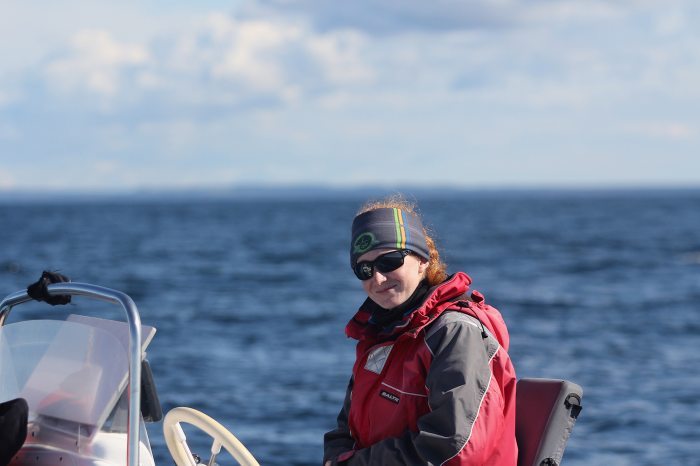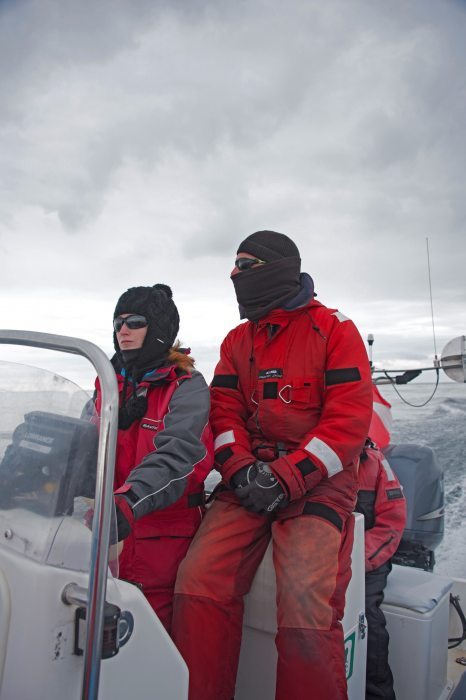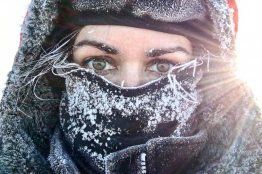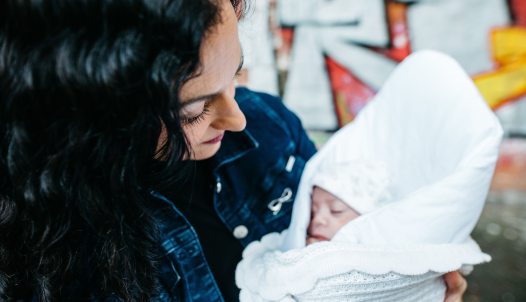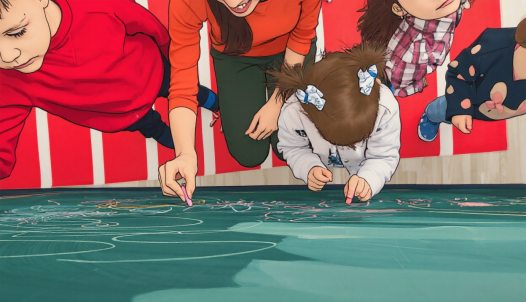How does a whale-obsessed little girl become a cetacean biologist working to protect and learn about the biggest mammals on Earth?
"As a child, I was very attracted to whale stories such as 'Free Willy' or National Geographic episodes," says cetacean biologist Dóra Székely, who is a great example of how, if you give it your all, your dreams can come true. To finance her studies, she has worked abroad as a saleswoman and caterer. She is currently studying and researching at the University of Copenhagen's doctoral school and is travelling to Greenland with a research team in May 2021.
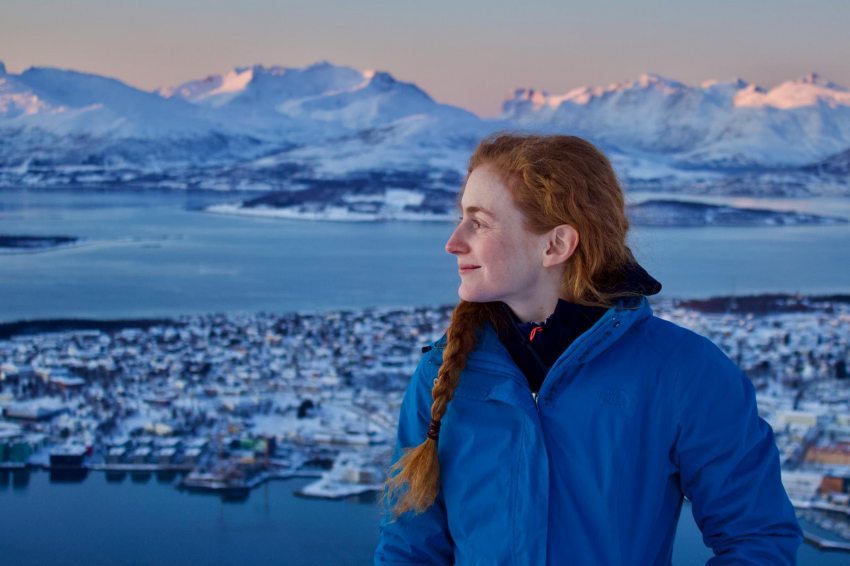
- Cetbiology - what attracted you to this profession? And what fascinates you about these huge animals?
- What you just said, their size. But it's very difficult to sum up what I love about them because it's all a feeling that I've probably never been able to put into words exactly. As a child, I was very attracted to whale films like Free Willy or National Geographic episodes, but at that time there was no scientific motivation behind my interest. I attended the Hungarian Dance Academy for a while, and then rode competitively, but all the while I kept thinking that it would be worthwhile to look into ways of getting closer to the animals I admired. Luckily, my sister and mum were supportive - in my house, everyone does what they love, everyone goes after their dreams.
- You were admitted to the Department of Zoology and Ecology at the Faculty of Natural Sciences of ELTE. What was your path to marine biology?
- At ELTE, you had to pass everything from analytical chemistry to nature conservation to get a degree in biology. During those years, I tried to make contacts that brought me closer to my whale research - some people advised me to volunteer with a cetacean research group abroad. So I did, but in the process, I was faced with the fact that someone with an unusual interest like mine has to pay for almost everything themselves, even if they only volunteer. I've also volunteered at marine mammal conferences (European, Cetacean Society annual conferences) - this has helped me tremendously in networking. I later realised also that cetacean research is a hugely underfunded profession, even though there is a lot to be done because we have very limited, almost minimal knowledge about cetaceans at the moment.
One or two species can stay underwater for several hours, which is why it is difficult to get information about them. The ocean may be full of species we don't even know about.
After graduating from ELTE, I started studying marine biology at the University of Groningen. I could have chosen a more exotic location, but my financial means allowed me to go to this school. Here I had the opportunity to participate in a research project on cetogenetics in Canada. It was the first time I had seen a whale up close. I just stood on the boat in St. Lawrence Bay and watched all the huge animals swimming around me. It was fantastic! After graduating from Groningen, I applied for a PhD at the University of Copenhagen, where I currently live and teach as a teaching assistant and as a supervisor for a student. As far as research is concerned, life is a bit stagnant at the moment, research is also stagnant because of the pandemic.
- What is your research area?
- Environmental DNA, also known as eDNA. In a nutshell, this means that we get genetic information about the cetaceans from water, so we don't have to take small pieces of them out. Water contains, among other things, cetacean epithelium; it's like when our skin's epithelium is left on a towel or a cloth.
- You must have had many ’ah-ha moments’ during your studies and fieldwork. Can you give us some examples?
- When you read stories and studies, you think it's not that hard to research the cetaceans. That's what I thought too, at the beginning. But in fact every aspect of it is challenging. Sometimes you have to wait weeks until the conditions are right to get out on the water. You have to be physically fit to ride the swell for 10-12 hours, and still focus on cetaceans and sampling. Samples have to be transported, processed in a lab (where many errors can be made), data analysed using various bioinformatics methods, and then a publication written in a clear and understandable way.
So you have to be a biologist, a boat captain, an athlete, a lab technician, a bioinformatician, a graphic designer at the same time, let alone a writer of course, because it's all pointless if you can't communicate your results to the public or to the professionals.
By the way, when I first went to a marine mammal conference and found out that this profession attracts people who are typically open-minded, enthusiastic and passionate about nature and the sea, I finally felt that I was not alone in this passion and that no one was looking at me strangely. It was an important milestone.
Then I was quite surprised how well you can approach certain whales by boat, because they aren’t scared off at all - although blue whales are very scared despite their huge size. We usually take biopsies and other samples at these times, and most of the time they don't mind, they tolerate it well.
I also gained important experience when we tried to collect samples in northern Norway on a whale-watching tour boat, and I experienced for the first time what a "whale watching season" is all about. There were as many as four or five boats to watch a group of killer whales from, large and small (add to that those who paid to swim with them), and these smaller boats sometimes had to manoeuvre very quickly around the dolphins to find the moment when they could get close enough for people to jump in the water with them. I naively thought that strict rules had to be followed to do these activities, but I was wrong.
- What are the main environmental threats to cetaceans today?
- One of them is the noise, I could say that where there is intensive shipping the cetaceans live in constant noise. In certain areas killer whales have been forced to communicate with each other at much higher frequencies than usual. They raise their voice over the noise of the sea to hear each other. There is also chemical pollution, whaling, cetacean collisions with larger vessels, plastic waste, tourism, but also industrial fishing, which not only overfishes the fish, but unfortunately also catches cetaceans quite often with huge trawls. This has brought many species to the edge of extinction.
- Has the shutdown due to the coronavirus outbreak brought any cleansing to the whales' habitat?
- There have been many reports that some species, including dolphins, have started to liven up with clearer waters, less noise and the fact that tourism has slowed down a bit. It would be good to study exactly what effects the shutdown had on cetaceans, but as I said, many research groups, including the one I was working with, have been stopped because of the epidemic. This has not happened for twenty years.
– You talk about your profession with great enthusiasm, your eyes sparkle when you talk about whales. But have you ever been discouraged? I mean, was there a point in your career when you had doubts about whether the path you were on was really for you?
– I never wavered, I would rather say that my journey was not exactly unobstructed. I was lucky because after my master's degree I managed to get a PhD - my research topic is environmental DNA - but the period in between was quite "painful", I delivered food, washed dishes in restaurants, and sold clothes in a fashion shop.
Unfortunately, completing my PhD is no guarantee of anything. I don't know if I'll have a job. In any case, I'm optimistic, because it's impossible that all the energy I've invested won't pay off!
I will be submitting a number of research funding applications in the near future, and if all goes well, I will be able to visit Greenland in May this year.
